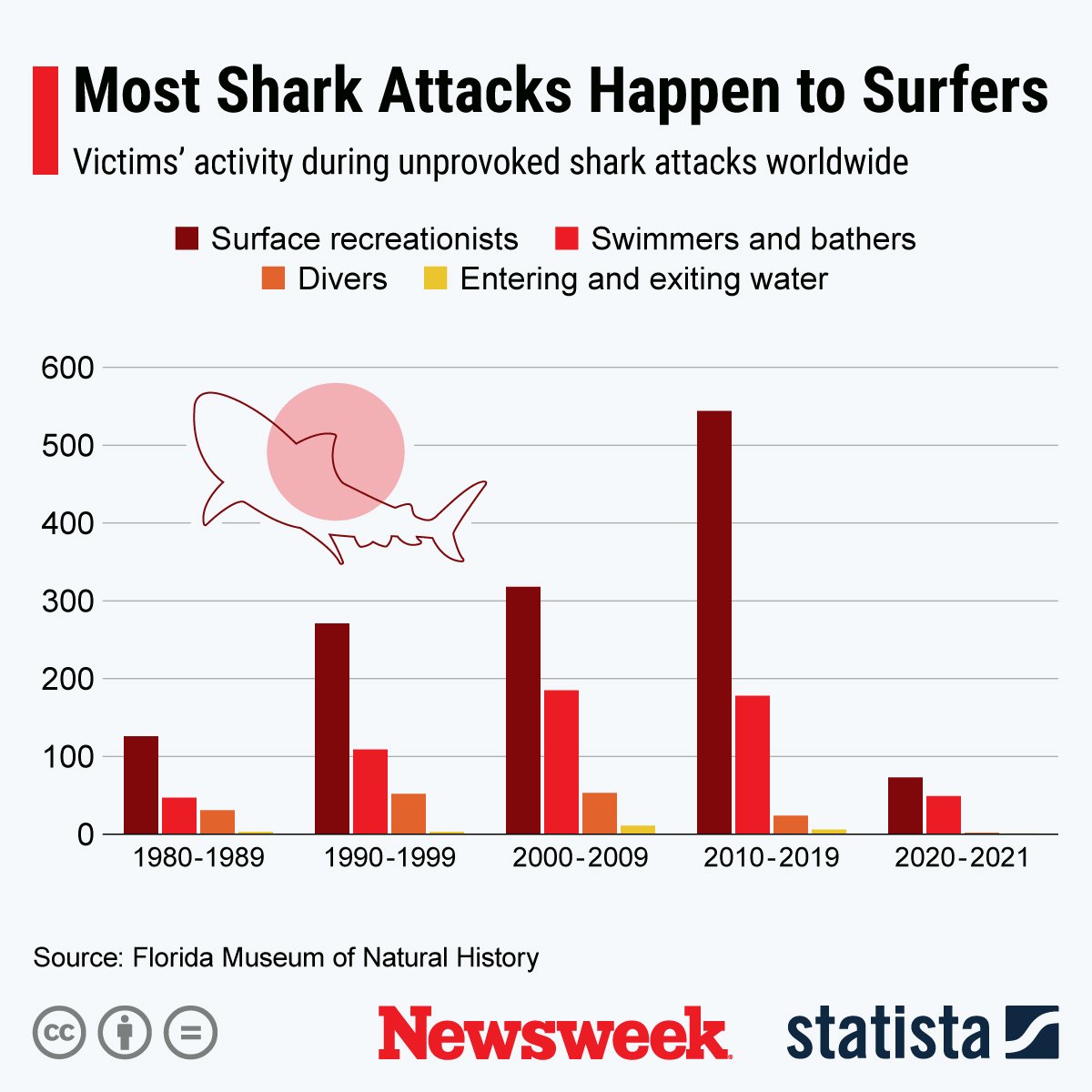A group of great white sharks has gathered just miles from the New York coast over July 4, Ocearch's shark tracker shows.
A huge great white called Scot, measuring more than 12 feet long and weighing 1,644 pounds, was tracked roughly 100 miles south of the city on July 3.
Scot was first tagged by the ocean research organization in September 2021, when he was found off Ironbound Island in Nova Scotia. Like most North Atlantic sharks, Scot spent the winter in the south, off the Gulf Of Mexico.
Scot is not the only great white shark to be tracked in the waters off New York recently.

Freya, who measures 11.26 feet and weighs 883 pounds, was tracked swimming close to Hamilton in Madison County, New York, on July 4.
In June, Freya was spotted in the shallows three miles from North Carolina's Pea Island. Since then, she has continued to travel north on her annual migration.
The population of great whites that includes Scot and Freya spends a large portion of the summer and autumn in the seas around Nova Scotia, Newfoundland and Maine, while winters are spent off the coasts of Florida, Georgia and South and North Carolina.
During their migration, the sharks stop off in Carolina waters for their mating season.
Five great white sharks have already been tracked off Nova Scotia from the end of June through to early July.
A shark measuring 9.75 feet called Tancook arrived on June 27, closely followed by a 7-foot shark called Martha, who arrived on June 28.
A 10-foot shark called Crystal then arrived on July 4, closely followed by Hali and Keji on July 5.
Ocearch's shark tracker pings when a tagged white shark comes close to the surface of the water.

This chart, provided by Statista, shows victims' activity during unprovoked shark attacks worldwide.
The organization tags the elusive species to learn more about their behavior. One of their main aims is to find out more about their mating habits.
To tag the sharks, Ocearch, lifts them out of the water onto a hydraulic platform. A flow of seawater is constantly passed over their gills while staff attach the tags to their bodies. Samples are also taken from the animals for data purposes. They are then returned to the water.
Despite these North Atlantic sharks appearing close to the shore, they pose little danger to humans. Although they have a fearsome reputation, there were only 47 shark attacks across the whole of the U.S. in 2021, with one fatality.
Uncommon Knowledge
Newsweek is committed to challenging conventional wisdom and finding connections in the search for common ground.
Newsweek is committed to challenging conventional wisdom and finding connections in the search for common ground.
About the writer
Robyn White is a Newsweek Nature Reporter based in London, UK. Her focus is reporting on wildlife, science and the ... Read more





